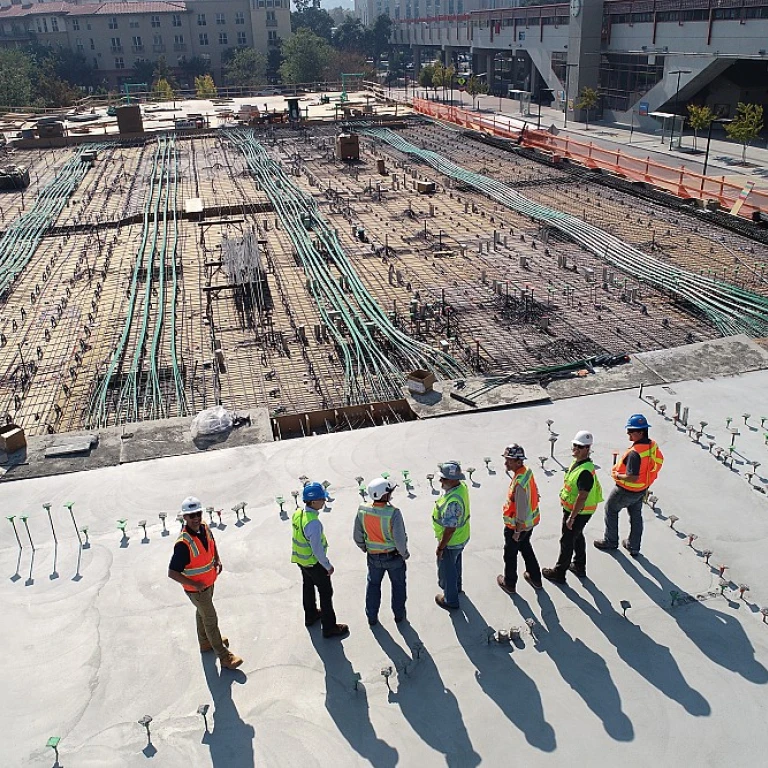
Understanding the Executive Interview Landscape
Diving into Executive Interviews
In the realm of executive interviews, understanding the landscape is paramount for any candidate aspiring to ascend into a senior management role. This involves familiarizing oneself with the unique dynamics that differentiate these interviews from standard job interviews.
Unlike other positions, executive interviews are less about ticking boxes on a skills list and more about evaluating how your leadership style and strategic vision align with the company's broader objectives. Here, interviewers will be keen to explore your decision-making capabilities, your ability to foster a cohesive team environment, and how adept you are at navigating company culture. You'll need to be prepared to dive deep into how you've previously handled complex challenges and how those experiences demonstrate your readiness for an executive role.
Effectively answering interview questions in this context requires a shift from simply listing qualifications to telling the story of your career trajectory through well-articulated, specific examples. It's about painting a picture that highlights your successes in past management roles and showcases your ability to contribute meaningfully to the organization.
Embrace this opportunity to clearly define the value you bring and exhibit how your management style is a good fit for the company's vision. By mastering this understanding of the executive interview landscape, you set a solid foundation for successfully preparing for the perennially challenging interview questions you'll encounter.
Preparing for Common Executive Interview Questions
Preparing Yourself for Success
An executive interview can be intimidating, but understanding common questions will help you confidently navigate the process. A job interview of this caliber often focuses on your ability to handle a management role, decision making, and customer service challenges. To prepare effectively, consider the following:- Identify the Job Requirements: Start by reviewing the job description. Analyze what the company is seeking in a candidate, and tailor your responses to highlight your relevant skills. Being familiar with the role can help you better describe how your past experiences make you a good fit.
- Anticipate Common Questions: While every interview varies, some questions consistently appear in executive interviews. These might include inquiries about your leadership style, how you handle team challenges, and your approach to problem solving. Practice articulating clear, concise answers that showcase your strengths.
- Use Specific Examples: When describing your experience, offer relatable and specific examples. Whether it's illustrating how you increased team productivity or resolved a company-wide issue, real-life scenarios strongly convey your capabilities.
- Research the Company Culture: Understanding company culture can help you explain why you’re a good match. Showing you’ve done your homework portrays you as a thoughtful candidate invested in the potential position.
- Handle Behavioral Questions: Behavioral questions in executive interviews explore your past behavior in professional settings. Structure your answers using the STAR method (Situation, Task, Action, Result) to demonstrate your decision making and management skills effectively.
Tailoring Your Experience to the Role
Customizing Your Background to Match the Position
When preparing for an executive interview, aligning your past experiences with the potential management role is crucial. Interviewers will look for candidates who can seamlessly integrate into the company culture and effectively contribute from day one. To achieve this, a candidate should present their skills and experiences in a way that directly relates to the role they’re applying for.
Begin by researching the company and management role you aim for. Understand their objectives, challenges, and the leadership qualities they value. This knowledge allows you to strategically highlight relevant skills during the interview.
- Specific Examples: Using specific examples from your past job interviews to showcase how you've successfully handled similar responsibilities is highly persuasive. This could include instances of problem solving, customer service excellence, or innovative decision making.
- Tailor Your Narrative: Tailor your professional narrative to emphasize experiences that are a good fit for the executive position. Highlight achievements and projects that demonstrate leadership capabilities and align with the executive interview's expectations.
Moreover, anticipate aligning responses to some questions ceo might ask, like explaining your leadership style or how you drive short term and long-term objectives. These questions help interviewers gauge whether you align with their vision and can steer the team accordingly.
For additional strategies on tailoring your experience to a role, this post provides insight into effectively presenting yourself during a job search process.
Demonstrating Leadership and Vision
Showcasing Leadership Capability and Vision
In an executive interview, demonstrating leadership and vision is crucial to establishing yourself as the best candidate for a senior management position. Interviewers will be looking for specific examples of how you’ve effectively managed teams, led projects, and solved complex problems. These examples help convey the depth of your leadership skills and your potential contribution to the company. Start by reflecting on your past experiences where you made impactful decisions. Describe these situations clearly, explaining your decision-making process and the outcomes achieved. For instance, you might illustrate how you implemented a new management strategy that enhanced your team's productivity. Your ability to convey strategic thinking and vision will be a key indicator of your potential to influence the company's direction. When asked about your leadership style, tailor your answer to match the company culture. The best answer provides insight into how you lead in ways that align with the organizational values and objectives. Consider discussing moments where you adapted your leadership based on team needs or company changes, demonstrating flexibility and foresight. Highlighting instances where you motivated and inspired your team can be influential. Describe times when you addressed challenges or conflicts within the team effectively, focusing on customer service and problem-solving approaches. These stories reveal not only your management role competencies but also how you fostered a collaborative and positive work environment. As you prepare for your executive interview, remember that the goal is to portray yourself as a visionary leader who is a good fit for the position in both the short term and over time.Handling Behavioral Questions with Confidence
Mastering Behavioral Questions with Poise
Behavioral questions are a staple in executive interviews, designed to uncover how you’ve handled situations in the past and how you might approach challenges in the future. These questions help interviewers gauge your problem-solving skills, decision-making abilities, and leadership style. To excel in this part of the interview, it’s essential to prepare thoroughly and respond with confidence.
When faced with behavioral questions, the STAR method (Situation, Task, Action, Result) can be your best ally. This approach allows you to structure your answers clearly and concisely, ensuring you cover all necessary aspects of the question.
- Situation: Begin by describing a specific example that relates to the question. For instance, if asked to describe a time you led a team through a challenging project, set the scene by explaining the context.
- Task: Clearly outline the task or challenge you faced. This helps the interviewer understand your role and the stakes involved.
- Action: Detail the actions you took to address the task. Highlight your leadership and management skills, and explain why you chose this particular approach.
- Result: Conclude with the outcome of your actions. Whenever possible, quantify your success to demonstrate the impact of your leadership.
For example, if you’re asked about a time you improved a process within your team, you might describe how you identified inefficiencies, implemented a new strategy, and achieved a measurable improvement in productivity.
Remember, the goal is to demonstrate that you are a good fit for the management role by showcasing your ability to handle real-world scenarios effectively. By preparing specific examples in advance, you’ll be able to answer these questions with clarity and assurance, leaving a lasting impression on your interviewers.
Asking Insightful Questions as a Candidate
Engaging with Insightful Questions
As a candidate in an executive interview, your ability to ask insightful questions can significantly impact the interview's outcome. This is your opportunity to demonstrate your understanding of the role and the company, as well as your interest in the position. Asking the right questions can also help you assess if the company culture and management style align with your career goals.
Here are some key areas to focus on when formulating your questions:
- Company Vision and Strategy: Inquire about the company's short-term and long-term goals. For example, "Can you describe the company's vision for the next five years and how this role contributes to that vision?" This shows your interest in the company's future and your potential role in it.
- Leadership and Team Dynamics: Understanding the leadership style and team dynamics is crucial. Ask questions like, "How would you describe the leadership style of the senior management team?" or "What are the key qualities you look for in a team member?" These questions help you gauge if you would be a good fit within the team.
- Role Expectations and Challenges: Gain clarity on what the role entails by asking, "What are the biggest challenges someone in this position might face?" or "Can you provide specific examples of successful projects led by someone in this role?" This will help you understand the expectations and prepare accordingly.
- Decision-Making Processes: Understanding how decisions are made within the company can provide insights into the management role. Consider asking, "Can you explain the decision-making process for key initiatives?" This question can reveal the level of autonomy and collaboration expected.
- Company Culture and Values: To ensure alignment with your values, ask about the company culture. For instance, "How does the company promote its values in everyday operations?" or "Can you describe a time when the company had to make a tough decision that reflected its core values?"
By asking these types of questions, you not only gather valuable information about the job and company but also demonstrate your proactive approach and strategic thinking. Remember, the best interviews are dialogues, not just a series of questions and answers.













